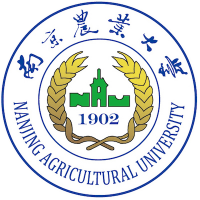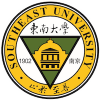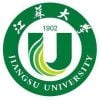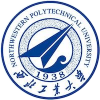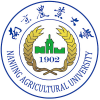Job Overview
More Information
- Address Houbiaoying Road, Xuanwu, Nanjing, Jiangsu, China
- Qualification PhD
- Apply Before No Deadline Set
- Discipline Language, Writing & Culture, Science & Engineering, Finance, Management, Economics and Business, Art, Law, Political Science, Education, Literature
About Nanjing Agricultural University
Nanjing Agricultural University (NAU) is a national key university under the direct administration of the Ministry of Education of the People’s Republic of China. While agriculture and life sciences have historically been the university’s core strengths, NAU’s educational mission today encompasses a broad range of academic disciplines including science, economics, management, engineering, law and the arts. NAU is a Project 211 institution and one of the Innovation Platforms for Outstanding Disciplines under the 985 Excellence Initiative Project launched by China’s Ministry of Education. With a 110-year history, Nanjing Agricultural University is committed to a blueprint for developing into one of world leaders among agricultural universities,cultivating innovative and entrepreneurial talents, and emerging as a regional hub for international academic exchange and cooperation.
New development strategies have been implemented to fulfill NAU’s mission of ensuring education quality, enhancing research strength and extending technology transfer and business outreach. Centered on two major goals of recruiting and retaining high-caliber faculty and building world-class campus facilities, NAU is committed to a leading institute of agricultural education. Development, reform, originality, harmony and pioneering spirit are the keywords of NAU’s strategic plans.
The Zhongshan Scholar Program is a new NAU initiative to support career development and innovation for leading scientists of today and tomorrow. Recruitment is divided into four categories: Zhongshan Distinguished Professor, Zhongshan Leading Professor, Zhongshan Leading Researcher, and Zhongshan Young Researcher.
I. Eligible applicants:
Tenured professors at overseas universities or young scholars with PhDs from overseas universities.
Candidates should be involved in one or more of the following research areas: crop science, agriculture resource utilization and environment sciences, plant protection, veterinary medicine, horticulture, biology, agricultural and applied economics, land resource management, food science, history of science and civilization, ecology, animal husbandry, agrostology, public administration, industrial economics, business administration, finance, agricultural and bioinformatics, marine biology, and modern agriculture equipment engineering.
II. Employee benefits:
A、For Lecturers/Associate Professors
1. A salary of about 100,000 RMB per year (housing fund and allowance included) will be offered to PhD degree holders to fill lecturer positions.
2. PhD degree holders will be provided with an apartment. A monthly rental allowance of 1,500 to 2000 RMB will be offered before the apartment is available for occupancy.
3. Successful applicants under the Zhongshan Scholar Program will be provided with a salary commensurate with title.
B、For Professors
4. Salary for associate and full professors is negotiable.
5. Initial research funding ranging from RMB 500,000 to 10,000,000 will be provided, depending on discipline and applicants’ status. Laboratory and office will be arranged.
6. NAU also provides housing and a relocation allowance.
7. Special support will be provided to leading researchers, including a full-time administrative secretary, assistance in assembling a research team, and priority in recommendations for research funding and government talent schemes.
8. Opportunities for career development and advancement including deanships of College of Agriculture and College of Life Sciences.
9. Job placement assistance and assistance with school placement will be provided to the spouses and children of successful candidates.
III. Application materials:
1. Curriculum vitae
2. PhD degree and current employment certificate
3. Copies of 5 selected articles published over the last five years
4. 1000 words executive summary of academic achievements and proposed research or work plan
5. Two or three recommendation letters from professors or associate professors (optional).
VI. How to contact us:
Mailing Address:
Human Resources Department,Office for Faculty Recruitment
Nanjing Agricultural University
No 1, Weigang, Nanjing, 210095,China
Tel: (86)25-8439-5361,Ms. Zhong Yuqun / (86)25-8439-9039,Ms. Chen Zhiying
Fax: (86) 25-84399039
E-mail: rsc@njau.edu.cn / rcb@njau.edu.cn
Website: http://www.njau.edu.cn
V. Introduction of Colleges
College of Agriculture
The College of Agriculture at NAU is one of the earliest institutions for both research and education in agricultural sciences in China. The College offers PhD, Master and Bachelor programs in crop sciences. We enroll more 250 PhD and master students and about 200 undergraduate students per year. Many well-known scientists ever started their distinguished work or studied in our college, including Prof. Jin Shanbao, Prof. Xu Guangren and Prof. Zhuang Qiaosheng. Now, the college ranks the top colleges in China, and our “Crop Science” ranks top 2 in terms of the first-category discipline. The discipline of crop science is also approved as the “National 211 Project” disciplines and “Priority Academic Program Development of Jiangsu Higher Education Institutions”. The college has three national level research centers, including “State Key Laboratory of Plant Genetics and Germplasm Enhancement”, “National Center of Soybean Improvement” and “National Engineering and Technology Center for Information Agriculture”. The college has set up its long term goal to be one of the worldwide known colleges in crop sciences, which play pivotal roles in agricultural researches targeting food security and environment safety.
The College is recruiting faculty to fill vacancies in crop cultivation and farming, crop genetics and breeding, bio-informatics, and seed science and technology.
College of Plant Protection
The College of Plant Protection has gained recognition as one of the crucibles of modern plant pathology, entomology and plant quarantine in China. The college consists of three departments: Department of Plant Pathology, Department of Entomology, and Department of Pesticide Science. The college is currently home to 88 faculty and staff (including 33 professors), 601 undergraduate students and 640 graduate students. The college has one National Class I Key Discipline (Plant Protection), three National Class II Key Disciplines (Plant Pathology, Entomology and Pesticide Science), and three Province and Ministry Key Laboratories. As a result of hard work over several decades, the college has obtained a rapid progress in education, research and social service. The college is recognized within China as operating at a high level of excellence and has achieved considerable international recognition.
The College is recruiting faculty to fill vacancies in plant pathology, entomology, and pesticide science.
College of Horticulture
The College of Horticulture, established in 1921, is the earliest department of its kind in China. Its predecessors, the departments of horticulture at Central National University and Jinling University, made great contributions to the development of modern Chinese horticulture. The vegetable science discipline has developed into a National Key Discipline.
It now offers 5 bachelor programs (Horticulture, Gardening, Landscape Science, Chinese Medicinal Herbal Science, Facility Agricultural Science and Engineering ), 6 master programs (Vegetable Science, Pomology, Garden Plants and Ornamental Horticulture, Chinese medicinal herbal science and Tea Science), and 6 doctoral programs (Horticulture, Vegetable Science, Pomology, Tea Science, Ornamental Horticulture and Chinese medicinal herbal science). It also houses a post-doc research station in horticulture. Current enrolments stand at 1637, including 1056 undergraduates and 591 postgraduates, as well as 10 students from overseas. There are about 100 staff members, including 28 professors and 34 associate professors.
The College is recruiting faculty to fill in vacancies in vegetable science, pomology, gardening, landscape science, Chinese medicinal herbal science, and facility agricultural science and engineering, Tea science.
College of Resources and Environmental Sciences
The College of Resources and Environmental Sciences (CRES) finds its roots in the Soil Science discipline in the agronomy department of the former Southeast University in 1992. It now offers 3 bachelor programs, 6 master programs, 2 professional master programs, and 3 doctoral programs. It also houses 2 post-doctoral research stations, one in agricultural resources and environment, and the other in ecology. It has an annual intake of 160 undergraduates and 230 postgraduates. There are 106 staff members, including 36 professors and 39 associate professors.
The Agricultural Resource and Environment discipline is rated National Key Discipline, and it embraces Soil Science, Plant Nutrition Biology, and Agricultural Environment Protection. The Ecology discipline covers six areas: food web structure and function, biogeochemical cycling, plant-soil interactions, restoration of degraded ecosystem, climate change and ecological risk assessment. The Environmental Engineering discipline covers solid waste disposal, wastewater treatment, environmental chemistry and biology, remediation of contaminated soil/site, and environmental risk assessment. The Marine Biology discipline focuses on marine environment and ecology, marine biological active substances, informational aquaculture in artificial seawater. In the past 5 years, CRES faculty have chaired or participated in more than 160 research projects and published about 90 SCI-papers every year in international journals. The annual research funding surpassed RMB 50 million.
The College is recruiting faculty to fill in vacancies in environmental science,environmental engineering, plant molecular genetics, microbiology and molecular biology, fertilizer science and nutrition management, soil science, ecology, marine biology.
College of Veterinary Medicine
The College of Veterinary Medicine (CVM), established in 1921, is one of the top veterinary colleges in China. It offers 2 bachelor programs, 3 master programs and 4 doctoral programs. There are 131 PhD students (incl. 15 from overseas) and 56 professional doctoral students, 444 research postgraduates and 129 professional postgraduate students, and 850 undergraduate students. It has 98 faculty members, including 29 professors and 30 associate professors.
It consists of three departments: basic veterinary medicine, preventive veterinary medicine, and clinical veterinary medicine. The basic veterinary medicine is rated as a National Key Discipline. Here is based the convener of the Veterinary Medicine Disciplinary Appraisal Group, authorized by the China Academic Degrees & Graduate Education Development Centre of the Ministry of Education. It is also home to the Secretariat to the National Veterinary Professional Degree Teaching Guidance Committee. It houses the Key Laboratory of Animal Bacteriology, the Key Laboratory of Animal Physiology and Biochemistry, and the High-Tech Innovation Center of Animal Disease Control, all funded by the Ministry of Agriculture. Affiliated to the CVM are a Veterinary Hospital and the Editorial Office of the “Journal of Animal Husbandry and Veterinary Medicine”. CVM researchers have claimed numerous awards and honours, including a Second Grade National Prize for Sci. & Tech. Progress.
The College is recruiting faculty to fill in vacancies in basic veterinary medicine, preventive veterinary medicine, clinical veterinary medicine.
College of Animal Science and Technology
The College of Animal Science and Technology (CAST) at NAU, established in 1917, is one of the earliest providers of higher education in animal husbandry in China. The college currently offers 2 bachelor programs, 5 master programs and 5 doctoral programs. It has a total enrolment of about 600 undergraduate students and 350 graduated students. The college generally focuses on research in the fields of animal genetics, breeding, reproduction, nutrition, production and feed science, and will exert great efforts in the areas of animal bio-technology and gastro-intestinal microbiology in the near future.
The College is recruiting faculty to fill vacancies in animal genetics and multiplication, animal nutrition and feed science, animal production, animal biological engineering, and aquatic animal nutrition.
College of Life Sciences
Established in 2002, the College of Life Sciences now consists of 4 departments: Plant Biology, Microbiology, Biochemistry & Molecular Biology, and Zoobiology. It offers 2 bachelor programs in biology and biotechnology. It also admits students in the National Base of Talent Training for Basic Research and Teaching in Biology, as well as the National Cultivation Base of Life Sciences and Technology. It provides master and doctoral education in 7 broad fields: botany, microbiology, biochemistry & molecular biology, zoology, cell biology, developmental biology, biotechnology, and bioengineering. It has a faculty of 102, including 27 professors and 32 associate professors.
Botany is rated Provincial Key Discipline of Jiangsu while microbiology the Key Discipline of the Ministry of Agriculture. It has conducted over 400 research programs over the last 10 years, with grants of more than 50 million RMB from national, ministerial and provincial sources. It has claimed many awards including a Second Grade National Award for Science and Technological Progress. It has also produced a number of high quality publications and course-books.
The College is recruiting faculty to fill vacancies in plant science, microbiology, bio-chemistry and molecular biology, zoology, cell biology, developmental biology and genetics.
College of Grassland Science
Nanjing Agricultural University (NAU) is the “birthplace” of grassland science in China. Professor Wang Dong and his collaborators at NAU made seminal contributions to the grassland science in China in 1950s and started pioneering research on grassland science in China. Academician Ren Jizhou and many other prestigious professors in the area of grassland science studied under the instruction of Prof. Wang at NAU. Ever since then, grassland science, especially forage science has been a continuous research area in NAU.
The College of Grassland Science at NAU was recently founded in Oct. 2012 on the basis of the “Provincial Key Discipline– Grass Science”. The college research studies mainly focus on the following areas: forage and turfgrass physiology, biochemistry and molecular biology; forage and turfgrass germplasm evaluation, genetics and breeding, grassland ecology, environmental protection, forage production and utilization, and pastureland sustainable utilization.
To facilitate the expanding development of grassland science, the college of Grassland Science at NAU is seeking applications for 6 Assistant/Associate/Full Professor positions to support the program of grassland researches. The successful candidates will either join well-established research groups or lead a new group conducting research on the above mentioned subjects or pioneering new research field related to grassland science.
College of Food Science and Technology
The College of Food Science and Technology at NAU evolved from the Department of Agricultural Products and Manufacturing established in 1902 at the National Central University. It now consists of three departments: Food Science and Engineering, Food Quality and Safety, and Biological Engineering, and offers academic programs at undergraduate through doctoral levels. Current enrolments stand at 800 undergraduate and 400 postgraduate. There are 65 faculty and staff, including 20 professors and 18 associated professors.
“Food Science” at NAU is rated as National Key Discipline. The College is proud to house a National Centre of Meat Quality and Safety Control, as well as the MOST (Ministry of Science & Technology) – USDA (US Department of Agriculture) Joint Research Centre for Food Quality & Safety Control and several key open laboratories authorized by the Ministry of Education and the Ministry of Agriculture. Here is also based the China Research Society of Livestock Product Processing.
The College is recruiting faculty to fill vacancies in livestock product processing and storage, food science, nutrition, and food inspection or food hygiene.
College of Economics and Management
The College of Economics and Management (CEM) is one of the earliest providers of higher education in agricultural economics and management in China. It offers 5 bachelor programs, 3 master programs, 4 professional master programs, and 2 doctoral programs. It houses a post-doctoral research station. It has an enrolment of 891 undergraduates, 163 research postgraduates, 651 professional postgraduates, and 98 PhD students. The total number of faculty stands at 67, including 18 professors and 17 associate professors.
The agricultural economics and management is rated the National Key discipline, while agricultural & forestry economics and management and rural development are rated as provincial key disciplines. It enjoys high-standard reputation in education and research in that it has produced 3 “Dissertations of National Excellence” and has claimed more than 20 provincial or ministerial awards.
The College is recruiting faculty to fill vacancies in industrial and business management, applied economics, agricultural and forestry economic management.
College of Public Administration
The College of Public Administration consists of 4 departments: Land Resource Management, Resources Environment & Urban-rural Planning, Public Administration, and Human Resources & Social Security. It offers 5 bachelor programs, 6 master programs, 4 doctoral programs, as well as one MPA program. Current enrolments stand at over 1,000 undergraduate and 680 postgraduate. There are about 80 faculty in the College.
Formerly named as Land Management College established in 1992, it was the first provider of doctoral education in Land Resource Management and housed the first Public Administration Postdoctoral Research Station in China. The Land Resource Management is rated as the National Key Discipline, and Public Administration as Provincial Key Discipline of Jiangsu.
The College is recruiting faculty to fill vacancies in land resource management, population, resources and environment economics, social security, public administration, educational economics and administration.
College of Finance
Established in October 2012, the College of Finance, is developed from the faculty of finance and accounting in the College of economics and management. The education and research on finance and accounting can be dated back to the 1920s when Professor John L. Buck initiated his research on crop insurance. In 1985, it started to enroll undergraduates in rural finance and thus became the first university to recruit students in finance in Jiangsu province. The 1980s also witnessed its recruitment of postgraduates in directions like rural finance, accounting and audit. It was accreditation to offer master program in finance in 1998 and in accounting in 2004 respectively. In 2002, it began to offer doctoral program in rural finance and in 2010, it started to offer doctoral program in finance under Applied Economics discipline. The total number of faculty stands at 32, including 8 professors and 11 associate professors.
The College of Finance currently offers two bachelor programs: finance and accounting. Both programs are of leading status among institutions offering the same programs in Jiangsu Province.
The College of Finance has 3 vacancies to fill in finance areas and 2 in accounting-related areas.
College of Engineering
The College of Engineering is situated in Pukou, Nanjing, which is one of the leading and initial engineering colleges in China. The College benefits from its multidisciplinary approach, with research covering a broad range of areas, and provides a framework to the research efforts, which are underpinned by research strengths in engineering areas. The integrated approach to engineering education brings together the key branches of engineering and draws upon research strengths in core disciplines. It has been at the forefront of developments, with an outstanding reputation in the field of agriculture engineering. To date, it is comprised of 5 departments with 12 disciplines, offering a comprehensive range of research programs (MSc, PhD), providing one post-doctoral research station and one key discipline doctoral base for agricultural engineering, 8 master’s programs in disciplines, one Jiangsu provincial laboratory of modern facility agricultural teleology & engineering. In addition, it also runs 12 undergraduate programs and has a strong track record of collaborating with industrial partners through both research and teaching activities as well. Some departments also collaborate on a number of national or internationally-significant joint research programs.
The College is recruiting faculty to fill vacancies in agricultural electrification and automation, agricultural mechanical engineering, electrical system and automation, power electronics and power transmission, vehicle engineering, transportation planning & management, machinery manufacturing & automation, materials processing engineering, mechanical design & theory, industrial design, management science and engineering, signal and information processing, and testing technology automation equipment.
College of Information Science and Technology
The College of Information Science and Technology offers 3 bachelor programs (Information Management & Information Systems, Computer Science and Technology, and Network Engineering), 3 master programs (Information Science, Library Science, and Computer Application Technology), and one doctoral program in Information Resources Management. There are about 1,000 enrolments and 51 faculty including 10 professors and 19 associate professors.
Researchers of the College have published numerous articles and monographs in areas like Information Retrieval, Intelligent Information Processing, Data Mining Technology, Multimedia Technology and Pattern Recognition, etc. They have undertaken a lot of core research projects sponsored by the National Natural Science Foundation of China, National Social Science Foundation of China as well as National High-Tech “863 Program”.
The College is recruiting faculty to fill vacancies in information science, management science and engineering, computer architecture, applied computer technology, and network engineering.
College of Sciences
Established in 1996, the College of Sciences now consists of 3 departments: Department of Chemistry, Department of Mathematics, and Department of Physics. It offers 2 bachelor programs (information & computing science and applied chemistry), 4 master programs (pesticide science, applied chemistry, applied mathematics, and bio-physics), and 2 doctoral programs (biophysics and pesticide science). Total enrolment stands at 553, including 456 undergraduates and 97 postgraduates. It has 71 staff, including 7 full professors as well as 5 guest professors from leading universities home and abroad.
It houses the Jiangsu Provincial Key Laboratory of Pesticide Science and the Provincial Experimental Teaching Demonstration Centre in Chemistry. It is also home to the Experimental Centers of Chemical & Physical Education, the Physical & Chemical Analysis Centre, the Agricultural Products Safety Testing Centre, the Pesticide Research Centre, the Institute of Applied Chemistry and the Isotope Scientific Research Platform.
The College is recruiting faculty to fill vacancies in physics, communication electronics, biophysics, probability and mathematical statistics, operation research.
College of Foreign Studies
The College of Foreign Studies at Nanjing Agricultural University acquired its name in 2001. It was developed from the Department of Foreign Languages in the College of Humanities and Social Sciences established in 1996. It offers programs in English and Japanese respectively, both at undergraduate and postgraduate levels, as well as a professional Master’s program in Translation. Besides, the College is responsible for providing language instructions–English as required in the curriculum, to all students other than English and Japanese majors, undergraduate up to PhD level. Other languages such as French, German, Russian, and Korean are also available. It admitted its first cohort of undergraduates of English majors in 1993, followed by that of Japanese majors in 1996. It witnessed the first intake of postgraduates of Japanese and English in 2002 and 2004 respectively. Current enrolments in BA and MA programs add up to 800. There are altogether 87 faculties, including 28 professors and associate professors. The college hosts three research institutes, namely, the Institute of Research on English Language and Culture, the Institute of Japanese Language and Culture, and the Institute of Contrastive Studies on Chinese and Foreign Languages. It is also home to the Provincial Lab Centre of Foreign Language Teaching. Teachers of CFS are encouraged to do research apart from teaching, in general linguistics, applied linguistics, literature, translation studies and other fields of the humanities and social sciences. In the past five years, they have undertaken six provincial and national research programs, published more than 300 research papers as well as over 40 academic monographs, textbooks, and dictionaries, and received six provincial and national awards; all of which leads the college among all institutions of higher agricultural educational in China.
The College welcomes interested candidates from home and abroad specialized in English or Japanese linguistics, literature, translation studies, and cultural studies.
College of Humanities & Social Sciences
The College of Humanities & Social Sciences was established in 1996. It consists of 6 departments: history of science and technology, sociology, tourism management, law, cultural management, and arts. It offers 5 bachelor programs (sociology, law, tourism management, cultural management, and performance), 5 master programs (history of science and technology, sociology, social work, economic law, special history, and agricultural extension), and one PhD program (history of science and technology). Total enrolment stands at around 1,000. It currently has a faculty of over 60, including 25 professors and associate professors.
It is home to the Institute for Chinese Agricultural Civilization as well as four research centers, namely, the Center for Rural Development, Center for Rural Tourism Development, Center for the Arts and Literature, and Center for Agricultural Law. It also runs the quarterly journal “Agricultural History of China”.
The College is recruiting faculty to fill vacancies in tourism management, law and piano.


